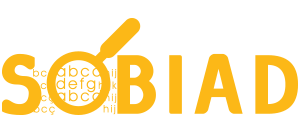A Comparative Analysis of English and Turkish Hashtags on Allergic Rhinitis
Instagram Hashtags and Allergic Rhinitis
DOI:
https://doi.org/10.5281/zenodo.10019796Keywords:
Social media, allergic rhinitis, Instagram, health Information, Medical professionalsAbstract
Background: In an era where social media serves as a powerful medium for information dissemination and interaction, this study focuses on examining and comparing social media hashtags in the English and Turkish languages related to allergic rhinitis on Instagram.
Method: The investigation includes an analysis of the number of followers associated with these hashtags and the extent of their alignment with allergic conditions and the property of the information about allergy according to the Global Initiative for Asthma (GINA) 2023. The study period ranged from January 11, 2022, to April 15, 2023, during which posts tagged with #Allergicrhinitis (English) and #Allerjikrinit (Turkish) on Instagram were meticulously investigated.
Results: The study reveals that the median follower count for #Allerjikrinit and #Allergichinitis hashtags were 4971 (200-231,000) and 469 (130-2321), respectively, with a significant portion of posts (35.2% to 47.8%) being unrelated to allergic rhinitis. The prevalence of advertisements was notably high, with 90% of #Allerjikrinit profiles and 55.7% of their posts containing promotional content. Remarkably, a considerable percentage (75%) of allergy-related information shared in posts contradicted the Global Initiative for Asthma (GINA) 2023 guidelines. Interestingly, 15% of those sharing content were medical professionals, demonstrating the potential influence of healthcare experts on social media platforms.
Conclusion: This study underscores the need for accurate medical information on social media, particularly with the active participation of medical specialists and regulatory institutes given allergic rhinitis since the majority of videos are unrelated to the topic.
References
Zhang Y, Cao B, Wang Y, Peng TQ, Wang X. When Public Health Research Meets Social Media: Knowledge Mapping From 2000 to 2018. J Med Internet Res. 2020;22(8):e17582. doi: 10.2196/17582.
Zimmermann BM, Willem T, Bredthauer CJ, Buyx A. Ethical Issues in Social Media Recruitment for Clinical Studies: Ethical Analysis and Framework. J Med Internet Res. 2022 May 3;24(5):e31231. doi: 10.2196/31231. Erratum in: J Med Internet Res. 2022;24(9):e40848.
Yum HY, Ha EK, Shin YH, Han MY. Prevalence, comorbidities, diagnosis, and treatment of nonallergic rhinitis: real-world comparison with allergic rhinitis. Clin Exp Pediatr. 2021;64(8):373-383. doi: 10.3345/cep.2020.00822.
Chen J, Wang Y. Social Media Use for Health Purposes: Systematic Review. J Med Internet Res. 2021;23(5):e17917. doi: 10.2196/17917.
Paige SR, Stellefson M, Chaney BH, et al. Examining the Relationship between Online Social Capital and eHealth Literacy: Implications for Instagram Use for Chronic Disease Prevention among College Students. Am J Health Educ. 2017;48(4):264-277. doi: 10.1080/19325037.2017.1316693.
Douglas NKM, Scholz M, Myers MA, et al. Reviewing the Role of Instagram in Education: Can a Photo Sharing Application Deliver Benefits to Medical and Dental Anatomy Education? Med Sci Educ. 2019;29(4):1117-1128. doi: 10.1007/s40670-019-00767-5.
Picazo-Sánchez L, Domínguez-Martín R, García-Marín D. Health Promotion on Instagram: Descriptive-Correlational Study and Predictive Factors of Influencers' Content. Int J Environ Res Public Health. 2022;19(23):15817. doi: 10.3390/ijerph192315817.
Venkatesan P. 2023 GINA report for asthma. Lancet Respir Med. 2023;11(7):589. doi: 10.1016/S2213-2600(23)00230-8.
Mills AJ, Pitt C, Ferguson SL. The relationship between fake news and advertising: Brand management in the era of programmatic advertising and prolific falsehood. J. Advert. Res. 2019;59:3–8. doi: 10.2501/JAR-2019-007.
Obadă DR, Dabija DC. "In Flow"! Why Do Users Share Fake News about Environmentally Friendly Brands on Social Media? Int J Environ Res Public Health. 2022;19(8):4861. doi: 10.3390/ijerph19084861.
Başar Kocagöz Z. , Sarıgedik E. , Sarıgedik B. Comparison of Coronavirus Anxiety, Sleep Quality and Quality of Life in Pregnant Women with Healthy Controls. OTJHS. 2023; 8(3): 275-281.
Aydin MF, Aydin MA. Quality and reliability of information available on YouTube and Google pertaining gastroesophageal reflux disease. Int J Med Inform. 2020;137:104107. doi:10.1016/j.ijmedinf.2020.104107
Gonzalez-Estrada A, Cuervo-Pardo L, Ghosh B, et al. Popular on YouTube: a critical appraisal of the educational quality of information regarding asthma. Allergy Asthma Proc. 2015;36(6):e121-e126. doi:10.2500/aap.2015.36.3890
Downloads
Published
How to Cite
License
Copyright (c) 2023 Ercan Kurt

This work is licensed under a Creative Commons Attribution 4.0 International License.
All articles published in this journal are licensed under the terms of the Creative Commons Attribution 4.0 International License (CC BY 4.0).










